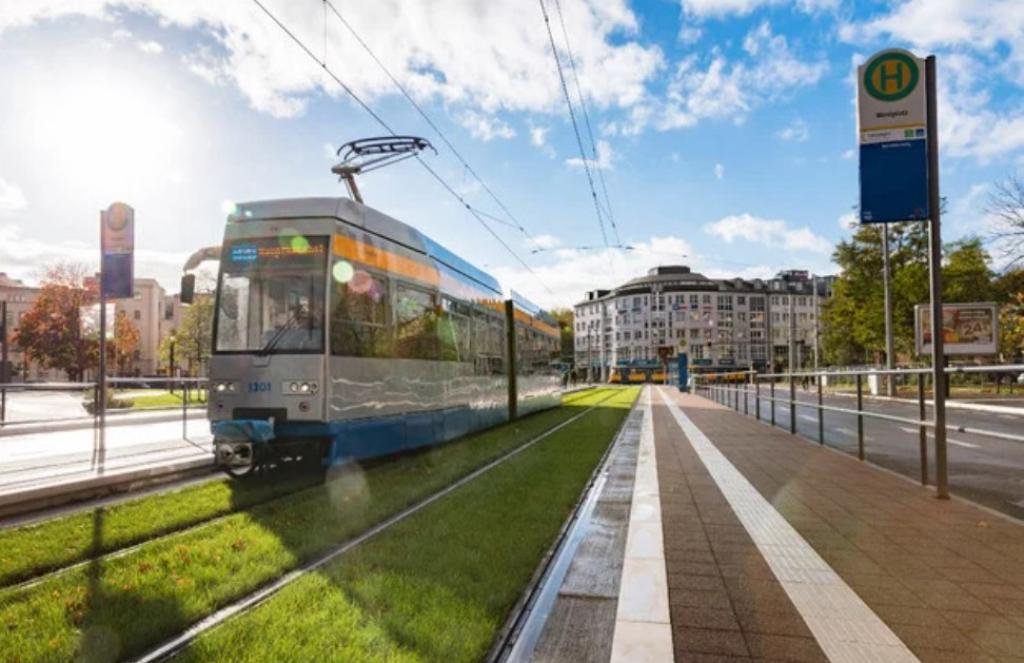Thessaloniki gets ready for its metro launch in November
The underground rapid transit lines have been under construction for almost two decades due to various project delays
 TheMayor.EU logo
TheMayor.EU logo 
The city plans to give an additional 9 million euros for public transport this year and 11.5 million in 2024, Source: City of Leipzig
With a decline in passengers due to Covid-19 and the energy crisis, among other factors, the city will focus on increasing the quality of service
Yesterday, local authorities in Leipzig announced additional funding for the city’s public transport system, despite what city officials have described as a financial downturn. Nevertheless, authorities will continue to add funding to the system and adapt its redevelopment and expansion schedules to fit demand.
According to an official statement, revenues for the local public transport operator, the LVB, have fallen due to a drop in passengers during the pandemic, while the energy crisis has also strained public transport budgets, especially for electric transport like trams.
Additionally, the so-called Germany Ticket, a 49-euro monthly pass for public transport valid throughout Germany will put even more strain on finances. Nevertheless, local authorities have pledged 9 million euros of funding for this year and an additional 11.5 million for the next.
With the funds, the LVB is supposed to increase quality and expand services relying heavily on Flexa – an on-demand service in far-flung urban districts with more remote transit connections. A similar service was launched in Hamburg recently, with the aim of reducing travel times in so-called last-mile trips – from large transit hubs to residential areas.
Furthermore, the average speed of public transport will be increased by 0.8 kilometres per hour by the year 2030, boosting quality, demand and revenue. Another measure includes tramline 16, as authorities will increase the frequency of trams in off-peak hours to ensure better connections to St. George Clinic.
The Germany ticket takes some pricing autonomy away from local transit providers but still allows them to forge their own offers. Local authorities explained that the 49-euro monthly pass for public transport would be a very good deal for residents but lead to a drop in revenue. Thus, they plan to increase the single ticket fare to compensate, although it is not yet clear by how much.
Moreover, data projections put total ridership numbers at around 180 million passengers by the year 2030, instead of the previous 220 million. This will force the city to adapt its long-term growth plans, including postponing some track restoration.

The underground rapid transit lines have been under construction for almost two decades due to various project delays

Now you can get your wine in Talence by paying directly in Bitcoin

That’s because the state has to spend money on updating the railway infrastructure rather than subsidizing the cost of the popular pass

Rethinking renewable energy sources for the urban landscape

The examples, compiled by Beyond Fossil Fuels, can inform and inspire communities and entrepreneurs that still feel trepidation at the prospect of energy transition

Now you can get your wine in Talence by paying directly in Bitcoin

The 10th European Conference on Sustainable Cities and Towns (ESCT) sets the stage for stronger cooperation between the EU, national and local level to fast track Europe's transition to climate neutrality.

At least, that’s the promise made by the mayor of Paris, Anne Hidalgo

The underground rapid transit lines have been under construction for almost two decades due to various project delays

At least, that’s the promise made by the mayor of Paris, Anne Hidalgo

Hostal de Pinós is located in the geographical centre of the autonomous region

Despite its church-y name, the district has long been known as the hangout spot for the artsy crowds

Urban dwellers across the EU are having a say in making their surroundings friendlier to people and the environment.

Forests in the EU can help green the European construction industry and bolster a continent-wide push for architectural improvements.

Apply by 10 November and do your part for the transformation of European public spaces

An interview with the Mayor of a Polish city that seeks to reinvent itself

An interview with the newly elected ICLEI President and Mayor of Malmö

A conversation with the Mayor of Lisbon about the spirit and dimensions of innovation present in the Portuguese capital














